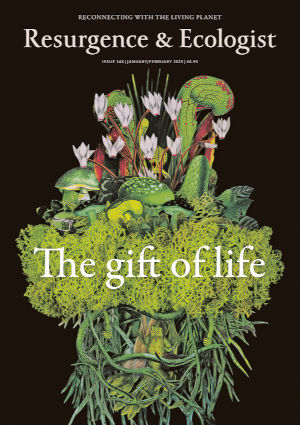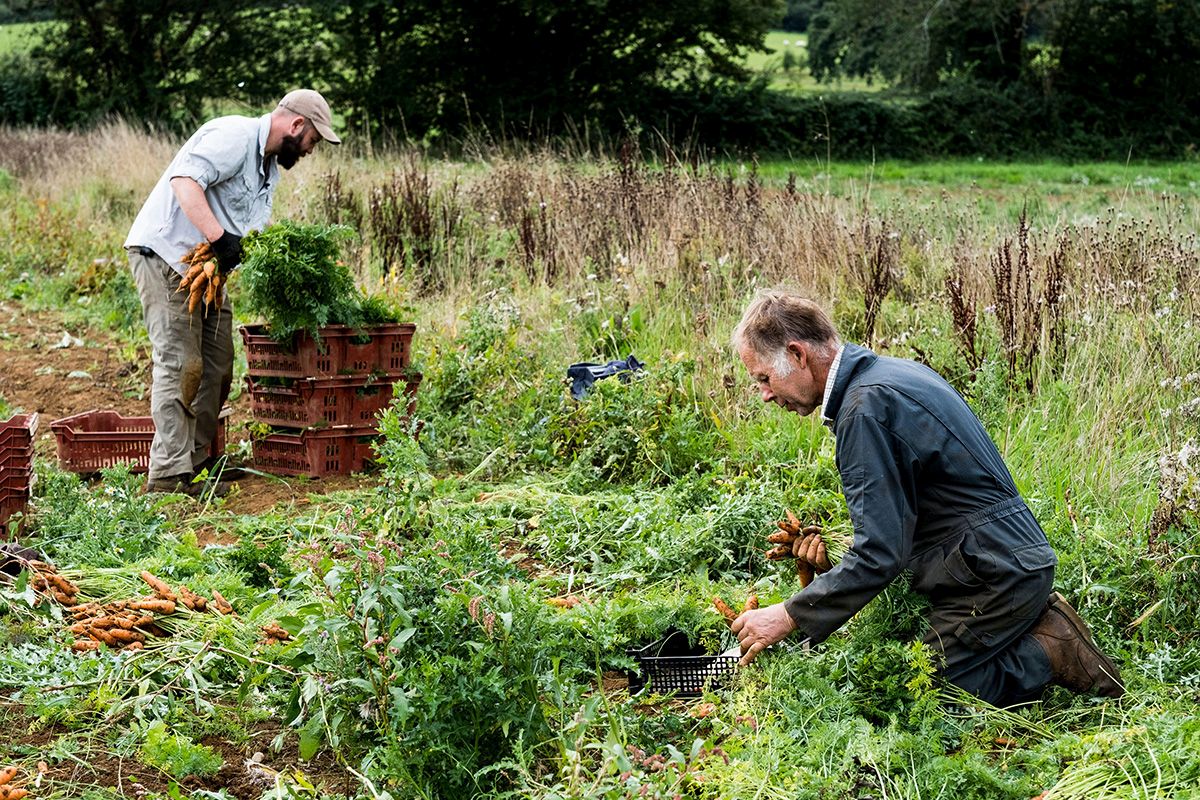Thirty years ago, Stephen Hawking voiced these prescient words: “For millions of years, mankind lived just like the animals. Then something happened which unleashed the power of our imagination. We learned to talk… Mankind’s greatest achievements have come about by talking ... greatest failures by not talking… All we need to do is make sure we keep talking.”
Granted, this statement was for a British Telecom ad, picked up by Pink Floyd in their achingly beautiful album The Division Bell. But regardless of the provenance, this naivete/openness will always win through over closed mindsets and cynicism because, essentially, we are social animals, and thus cooperation is key to our survival.
The current divide lies between a highly reactive mindset of closed borders and increasingly fascistic tendencies set against a cooperative approach of bottom-up organisation and a sweeping away of the profit-mongering nature of industrial capitalism: cronyism, wars, and the desecration of the good things in life – wild lands, seas, our fellow creatures and sustainable living.
On a smaller scale, let’s examine the example of the campaign group Vegans Support the Farmers, who have cut through this divide – and the associated media-driven culture wars – to open up meaningful dialogue between two supposedly violently opposed tribes.
Co-founder Kerri Waters explains how this has happened: “We have been focusing on healing the divide between our two groups and raising awareness about the mental health crisis affecting the farming community.
“One of the most inspiring aspects of our journey has been attending farming conferences and county shows, where we have built meaningful relationships and gained a deeper understanding of the challenges faced by farmers. We are now recognised at these events, and so we’ve been busy fostering positive dialogues over a friendly cup of tea.”
It is the strong organisational approach from this Animal Rising offshoot that is demonstrably working. Vegans Support the Farmers were present at more than 15 vegan markets, conferences and festivals in 2024, with a notable slot at the UK’s largest vegan festival, Vegan Camp Out, which drew over 200 attendees who left the event newly convinced that the animal rights movement must change its approach towards farmers.
Through these efforts, plus a ‘four half-marathons’ sponsorship drive, over £7,000 has been raised of a £10,000 target fund for young farmers struggling with their mental health. (Farmers have the highest suicide rate in the UK.)
Waters adds: “Overall, the experience has allowed us to show farmers that the majority of the vegan movement cares deeply about their lives and future. It has been a transformative experience watching vegans and farmers change their minds about each other just through chatting. For some farmers, it’s been the first time they have ever met a vegan. It really goes to show there is more that unites us than divides us and the only way forward is together.”
This coming together is vital to push back against Big Ag (industrial-scale agriculture) and profiteering supermarkets. In India, farmer suicide rates have escalated owing to the extortionate costs of pesticides like Roundup. The farmers who use Roundup are obliged to fork out every year for the ‘terminator’ seeds that go with it, unlike those using heritage seeds, which can be sown year on year through seed saving. But the Syngentas and Monsantos of this world lord it over the majority of growers (and us) with their policy of profits over people.
In reality – and clearly well outside the narrative fed to us by the various mainstream media platforms and the five big global tech companies (Apple, Amazon, Alphabet, Meta and Microsoft) – both farmers and vegans find themselves isolated and equally demonised. But it is having this in common that has created cooperation and opened up a discussion about the just transition to plant-based diets.
THE NEXT BIG THING
Another grassroots-up initiative is Assemble, the national network of people’s assemblies taking place in cities as far afield as Hull and Bristol. In spring 2024 XR co-founder Roger Hallam told Resurgence & Ecologist, “This is the next big thing; we have £100,000 in funding and 70 Assemblies. Independent candidates [during the 2024 parliamentary election in the UK were] a way of building a new social movement across the eco and social crises.”
Speaking from prison following the imposition of a five-year sentence for helping organise the M25 gantries action in 2022, he added, “Along the way, the ruling class will have the police knock on your door and have you put away for half a decade. What needs to be done? It’s time to unite the non-Labour left and the climate resistance space, to fuse.
“We have a lot to learn from each other, and millions of people are crying out for initiative and leadership. A programme for decency, compassion and survival. A massive reduction in inequality to fund the reduction in emissions and Earth system repair. Anything less and we will have nothing but fascism and mass death.”
It is this ripple effect and a joining together that will prove key, as solid, disciplined grassroots organisation pays dividends, but this time with people over profit.
Also in the spring, another youth-led campaign, Everybody Eats, grabbed the headlines. Directly eating into supermarket profits by refusing to pay for products or taking them from the supermarket food bins, and distributing them to nearby food banks, they were described as “angels” by one food bank manager.
Currently around 15 million people in the UK are in food and fuel poverty – this in the sixth-largest economy in the world. Everybody Eats have targeted supermarkets from Manchester to Hastings, sparking debate about their Robin Hood tactics. Yet over a year ago the governor of the Bank of England warned that we had reached ‘apocalyptic’-level food price rises, while at the same time UK farming productivity is forecast to decline as our climate heats and ecological systems buckle. All this is on top of fragile trade links and the shocking reliance on imported foods. In the UK only 60% of all foods are home grown and of that only 23% of fruit and vegetables is from this country.
The National Food Strategy recommendations made under the previous Tory government detailed how broken our food system is and the destructive effect agricultural policy has on our natural environment. We need a resilient farming sector that can respond to the climate crisis. Instead, farmers have been pushed over the edge with decades of governments interested only in cheap imports and a food industry in a race to the bottom of cheap prices.
It is a secure and sustainable plant-based food system glo-bally that will deliver and stave off the worst-case scenarios of climate breakdown and in so doing support farmers to transition to a realistic, sustainable food future.
It is estimated that more than 70% of farmland can be taken out of production and rewilded to allow depleted soils to recover, while still providing enough wholefoods for the growing British population. Rivers and seas will become cleaner, as will our atmosphere. Wild animals and insects will return and flourish as the industrial scale of animal farming and super-trawler fishing die off like fossil fuels – stranded assets.
Weekly national briefing link for Assemble, Thursdays at 7pm: www.timetoassemble.org/events







